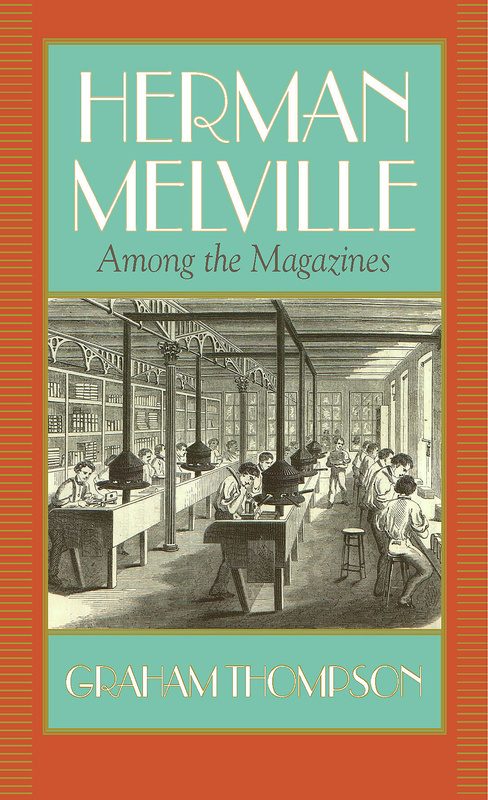Our shopping cart is currently down. To place an order, please contact our distributor, UTP Distribution, directly at utpbooks@utpress.utoronto.ca.
What I feel most moved to write, that is banned,—it will not pay. Yet, altogether, write the other way I cannot. Herman Melville wrote these words as he struggled to survive as a failing novelist. Between 1853 and 1856, he did write "the other way," working exclusively for magazines. He earned more money from his stories than from the combined sales of his most well known novels, Moby-Dick, Pierre, and The Confidence-Man.
In Herman Melville Graham Thompson examines the author's magazine work in its original publication context, including stories that became classics, such as "Bartelby, the Scrivener" and "Benito Cereno," alongside lesser-known work. Using a concept he calls "embedded authorship," Thompson explores what it meant to be a magazine writer in the 1850s and discovers a new Melville enmeshed with forgotten materials, editors, writers, and literary traditions. He reveals how Melville responded to the practical demands of magazine writing with dazzling displays of innovation that reinvented magazine traditions and helped create the modern short story.
In Herman Melville Graham Thompson examines the author's magazine work in its original publication context, including stories that became classics, such as "Bartelby, the Scrivener" and "Benito Cereno," alongside lesser-known work. Using a concept he calls "embedded authorship," Thompson explores what it meant to be a magazine writer in the 1850s and discovers a new Melville enmeshed with forgotten materials, editors, writers, and literary traditions. He reveals how Melville responded to the practical demands of magazine writing with dazzling displays of innovation that reinvented magazine traditions and helped create the modern short story.
Thompson persuasively argues that Melville's short fiction is misread when we neglect the fact that it was initially serialized in magazines, offering genuine insights into a number of Melville's shorter works. The author carefully analyzes both the professional cultures of Harper's and Putnam's and the material culture of paper to make his case.'—Brian Yothers, author of Sacred Uncertainty: Religious Difference and the Shape of Melville's Career
'Thompson writes with clarity and liveliness. Herman Melville is substantial and displays terrific command of Melville's biography and writings.'—Hester Blum, author of The View from the Masthead: Maritime Imagination and Antebellum American Sea Narratives
'Thompson takes good advantage of important, obscure archival materials from publishers' records and offers a number of interesting new readings of these fictions' subtexts.'—Choice
'Herman Melville Among the Magazines will be of interest to scholars of Melville and anyone curious about the possibilities of a biographical approach to book history. Thompson's study succeeds in returning priority to 'the imaginative acts of authorial creation that brings texts into existence in the first place.''—SHARP News
'Thompson strives to place Melville back into his context . . . Throughout his study,Thompson embeds Melville in a world populated by literary composition, paper production, reprinting, magazine paratexts, serialization, competing editorial demands, and a host of other material and cultural environments.'—Nineteenth-Century Literature
'Thompson's book raises a number of important questions, including just how we should understand the interaction between a periodical's editorial direction and the meaning of particular works that appear in its pages.'—Leviathan
Graham Thompson is associate professor of American studies at the University of Nottingham and author of numerous books, including, most recently, American Culture in the 1980s.





